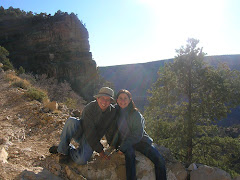Many people know that I am (in my own small way) an advocate for those living with cancer. The charity I always give to and ask people to help is St. Jude Children's Research Hospital because of the help they provide to children living with cancer. Although I never was able to run the 2006 NYC Marathon, I managed to raise over $1000 for St. Jude.
On the side, I've also been a fan of Lance Armstrong - as an athlete - but also with his work through the Lance Armstrong Foundation. I was recently on the website and saw a blog post (copied below) from Dr. Harold Freeman. Lance is taking the fight to the Presidential candidates this year in the hopes that they'll listen and do something about the disparity written about here:
Dr. Harold Freeman talks about Cancer in Harlem I'm happy to write in today and share some of my thoughts about the cancer community in which I serve. Tomorrow I celebrate 40 years of service in Harlem.
Any substantial approach to reducing the cancer death and improving the cancer survival rate in an underserved community such as Harlem, must take into account the overarching causes of cancer disparities which are poverty, lack of health insurance and low educational level. There are two levels of solution, national and local:
(1) At the national level we need policy changes that would promote universal access to health care. Currently, there are an estimated 46 million Americans who are uninsured;
(2) At the local level we should promote community programs which assist and guide poor and uninsured Americans through the very complex health care system. I have pioneered such a program. It is called Patient Navigation. The role of this program is to eliminate any barriers that individual patients face in seeking to obtain timely quality cancer care. This kind of personal one-on-one assistance has been very effective in Harlem and is being applied at many other sites around the country; and
(3) We must also create effective public educational programs which will promote primary and secondary cancer prevention.
Someone asked me recently to share some of the highlights of my service in Harlem. I would like to share the following:
- I have gained a deep knowledge of the meaning of poverty and the meaning of race as determinants of survival and using this insight to enlighten scientists and the American public about the relationship between race, poverty and cancer.
- In 1979 I established free breast cancer screening and diagnostic centers both in the community and at Harlem Hospital. Both of these programs are still operating today.
- In 1990 I initiated the nation's first Patient Navigator program at Harlem Hospital. In published studies, I showed that there was a marked increase in 5 year survival from breast cancer when women were offered free screening and were navigated to rapid resolution including treatment if necessary. The 5-year breast cancer survival rate in Harlem increased from 39% before intervention to 70% after intervention.
- With a leadership gift from Ralph Lauren, I founded the Ralph Lauren Center for Cancer Care and Prevention in 2003. This Center is having a deep impact on providing access to screening, diagnosis and timely quality cancer treatment irrespective of the patient's ability to pay for services.
- For 25 years I was Program Director of a Surgery Residency Training program at Harlem Hospital. More than 100 surgeons were trained in this program which was fully approved by the American Board of Surgery.
- Through my work as a surgeon in the community of Harlem I was promoted to positions of National importance such as National President of the American Cancer Society and Chairman of the US President's Cancer Panel. This gave me the opportunity to look at the entire nation through the lens that I had developed in my work as a cancer surgeon in Harlem. To the extent that I have made contributions to the nation in cancer control, I attribute my success to my opportunity to work as a surgeon in Harlem. This allowed me to gain some understanding of the human conditions in which cancer and other diseases occur and to teach that we must understand those conditions -- economic, cultural, social, environmental, and political conditions -- in order to find remedies and solutions to the problem of excess mortality from cancer in poor communities.
Over 40 years I have seen significant progress in cancer outcome overall in America as well as progress in poor and minority communities. This is good. But while black Americans, for example, have improved survival overall from cancer, the most frustrating reality to me is that the gap in 5 year survival between black and white Americans has not changed in these 40 years.
In another 40 years what would please me would be that we as a society eliminated the disconnect between what we discover and what we deliver to all American people irrespective of their ability to pay and close the gap between what we know and what we do.





No comments:
Post a Comment